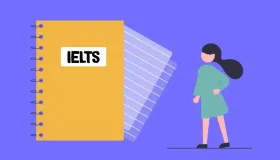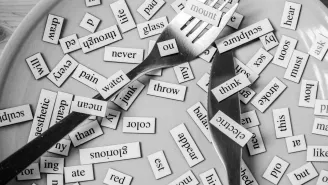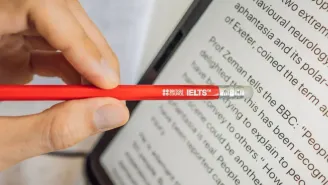Making Time For Science Reading Answers Passage
Making Time For Science Reading Answers Passage
Paragraph 1. Chronobiology is something out-of-the-box thinking inspired by a science fiction novel; moreover – it’s a scope of study regarding one of the ancient processes of life on this planet: short-term time scale and their impact on the existing plants and animals.
Paragraph 2. It includes many aspects. Sea life, for instance, is based on tidal wave patterns. Animals, on the other hand, seem to be active or inactive mainly due to the placement of the Sun or Moon. Millions of species, including humans, are mostly diurnal – that is, they do most of the activities in the morning. Whereas, nocturnal animals like bats and possums do their activities in the night time. Apart from these two, a third group, known as crepuscular, that are active in the lowlight of dawn and always not active during other hours.
Paragraph 3. For human beings, chronobiologists have more interest in what is called the circadian rhythm. It is a whole cycle of our bodies made to experience within the passage of a full twenty-four hour day. Besides going to sleep at night and wake up in the morning, each cycle includes so many aspects like differences in blood pressure and overall temperature of the body. It is a fact that not all people have the same circadian rhythm. ‘Night people’, for instance, mostly illustrate how they feel it is very difficult to perform in the morning, however, the same people will be alert and active by evening. There is a new type within circadian rhythms called a chronotype.
Paragraph 4. Well, scientists use minimal skills to make measurable modifications of chronobiological requirements. The newly-formed therapeutic advancements for human beings, like the artificial light, machines and robots, melatonin administration, and so on, can reinvent our circadian rhythms; for instance, our human body can communicate the difference in various ways, and the actual health feels less active when we deviate such natural rhythms for over a period of time. In this context, plants do not become more malleable, research reveals that vegetables grown in different climatic conditions and ripened on the tree have more necessary nutrients and vitamins than those that emerged in greenhouses and ripened by laser.
Paragraph 5. Insights of chronobiological variations may have practical consequences in our everyday life. Here, the modern form of living might seem to subjugate biology – perhaps, who will require circadian rhythms when we have caffeine tablets, energy waters, work shifts and places that never stop working? So being in tandem with our body clock is imperative.
Paragraph 6. On average, residents in the urban area wake up at 6.04 a.m., which studies show that it is way too early. Likewise, another research found that when residents wake up at 7.00 a.m., they will tend to have a negative impact on health unless they do any workout for at least 30 minutes later. After considering all these, the best time to wake up is at 7.22 a.m., when residents will have fewer muscle aches, headaches, and mood swings. It is proved based on a study, where respondents reported the same.
Paragraph 7. Once you are up before the alarm rings what’s there to stop then? If you want to lose weight, some dieticians won’t compromise easily, as they mandate breakfast every day. It leads to misorientation of your circadian rhythm and makes your body starve. The suggested step to do is to perform an intense routine workout along with a carbohydrate-filled breakfast; while the other way and weight reduction ended up as not expected.
Paragraph 8. Every morning workout is equally important for breaking out the vitamins stored. In addition to that, adding more supplements to the body is not temporal-dependent, however, the famous naturopath Pam Stone highlights that more amount during breakfast could assist in getting energy to do tasks on that day. To absorb more to the body, Stone recommends additional supplements with a portion of food (mixed and soluble). It must not be with caffeinated beverages. Beyond this, Stones alerts us about taking storage; when you reach the high potency, it’s good for absorption, whereas, warmth and humidity will lead to destroying the potency of a supplement.
Paragraph 9. Post-dinner espressos became like a form of tradition. We must thank the Italian people for bringing it to us. To have a good night’s sleep, we need to stop consuming caffeine as early as 3 p.m. After crossing a seven-hour half-life, a cup of coffee having 90 mg of caffeine consumed during this time might still have 45 mg of caffeine in your body’s nervous system at ten o’clock on the same day evening. It is necessary to remove all traces when you go to bed.
Paragraph 10. Evening times are essential to process the winding down before going to bed. On the contrary, dietician Geraldine Georgeou alerts us that post-five carbohydrate fasting is merely a myth instead of a chronobiological requirement. This will cause deprivation of critical energy from your body. Similarly, when you consume more than enough, it will lead to indigestion. It is important to note that our digestive system does not stop working throughout the night, but it works slowly as our bodies prepare to sleep. Despite all, you can take a moderate snack, which would be highly sufficient.
Let’s explore the questions and answers to the Making Time For Science Reading passage.
Also Read: IELTS Reading Tips & Tricks 2024: Techniques for Band 9
Making Time For Science Reading Answers with Sample Questions
Have you read the passage? Now, take the test and find Making Time For Science Reading Answers! Try to answer these questions by yourself before you sneak a peek at the answers given below.
Check Out Top 20 IELTS Reading Practice Test Questions with Answers
Below are some top 20 free IELTS Reading Practice test online questions with detailed answers to enhance your IELTS preparation online. We have provided sample passages for each test type for your reference.
- What Is Exploration Reading Answers
- Effects Of Noise Reading Answers
- The Discovery Of Baby Mammoth Reading Answers
- The Dead Sea Scrolls Reading Answers
- The Ring-Tailed Lemur Reading Answers
- Why We Need To Protect Polar Bears Reading Answers
- Nutmeg A Valuable Spice Reading Answers
- What Is Meaning Reading Answers
- Cutty Sark Reading Answers
- The Step Pyramid Of Djoser Reading Answers
- South Pole Adventurer Reading Answers
- The Future Of Work Reading Answers
- Ambergris Reading Answers
- Trees In Trouble Reading Answers
- Could Urban Engineers Learn From Dance Reading Answers
- The Flavour Of Pleasure Reading Answers
- The Value Of A College Degree Reading Answers
- Why You Should Delegate Tasks To Team Members Reading Answers
- Corporate Social Responsibility Reading Answers
- Forest Management In Pennsylvania USA Reading Answers
- Online Roommate Finder Toronto Reading Answers






